#Tasuku Kaname
Text
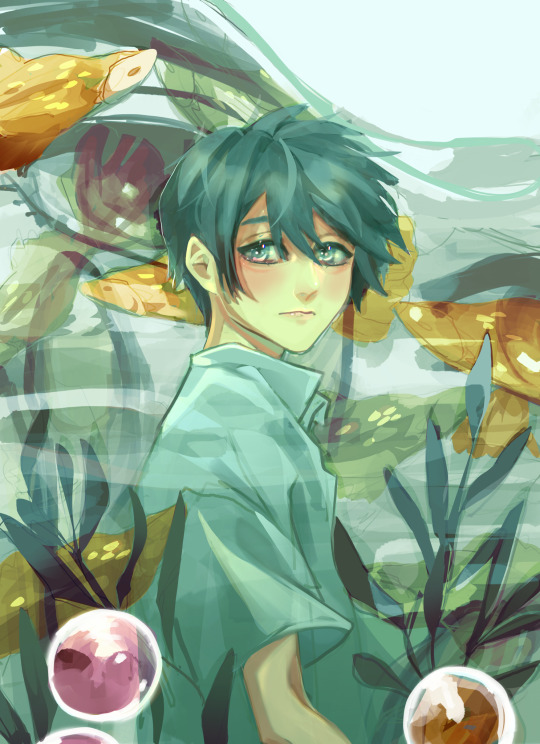
🫧 fish in a bowl slightly cleaned up version
#congrats on graduating from warm-up status tasuku#shimanami tasogare#our dreams at dusk#tasuku kaname#available as a print if u even care#my art
166 notes
·
View notes
Text
Today's LGBT+ Character is;

Tasuku Kaname from Our Dreams at Dusk-Gay
Requested by Anon
Status: Alive
#Tasuku Kaname#Our Dreams at Dusk#gay#lgbt#character of the day#mlm#manga#fandoms i'm not in#requested#lgbt poc#alive#LGBTQueue
12 notes
·
View notes
Photo
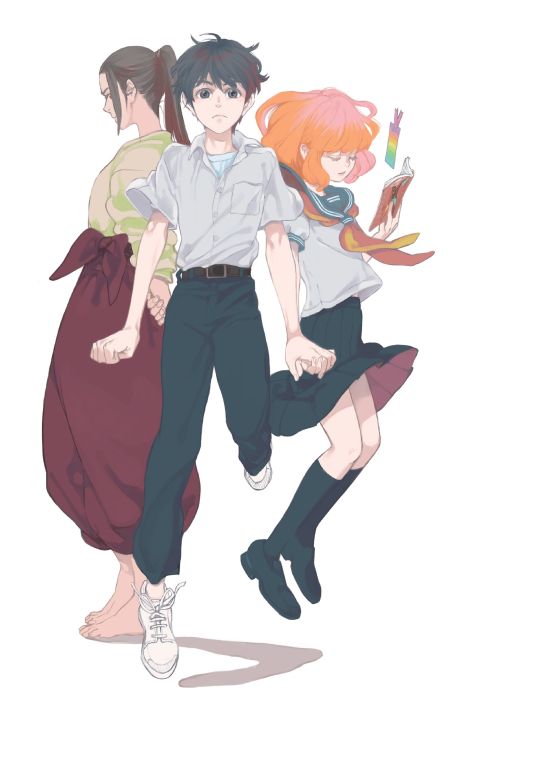
Shimanami Tasogare - Yuhki Kamatani
82 notes
·
View notes
Text
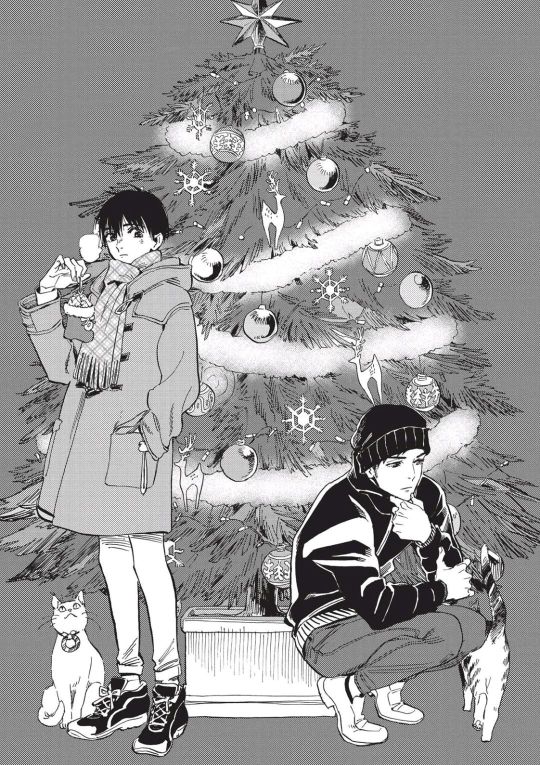
51 notes
·
View notes
Text

50 notes
·
View notes
Text

I love him
3 notes
·
View notes
Text
Oltre le Onde, un bel manga LGBTQIA+
Oltre le Onde, un bel manga LGBTQIA+
Oggi vi consiglio questo manga, Oltre le Onde – Shimanami Tasogare di Yuhki Kamatani edito da Jpop , che mi ha coinvolta già dal primo volume! Non ci sono ancora tantissimi fumetti LGBTQIA+ ma qualcosa sta cambiando nel panorama giapponese nell’ultimo decennio. È bello che un ragazzo dichiari il proprio orientamento sessuale senza espedienti, travestimenti e ambiguità sul genere dei personaggi…
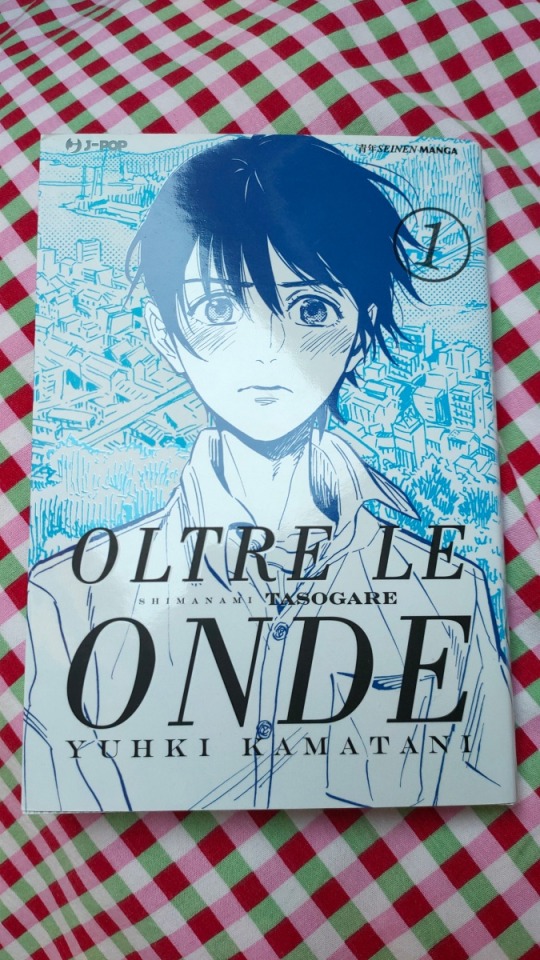
View On WordPress
1 note
·
View note
Text
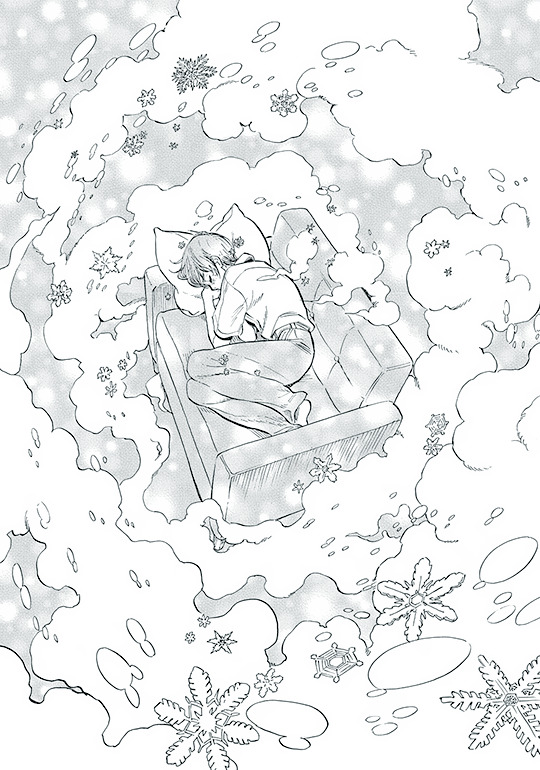
SHIMANAMI TASOGARE (2015-2018)
by kamatani yuuki
97 notes
·
View notes
Text
Review #29: Our Dreams at Dusk: Shimanami Tasogare (Volume 4)
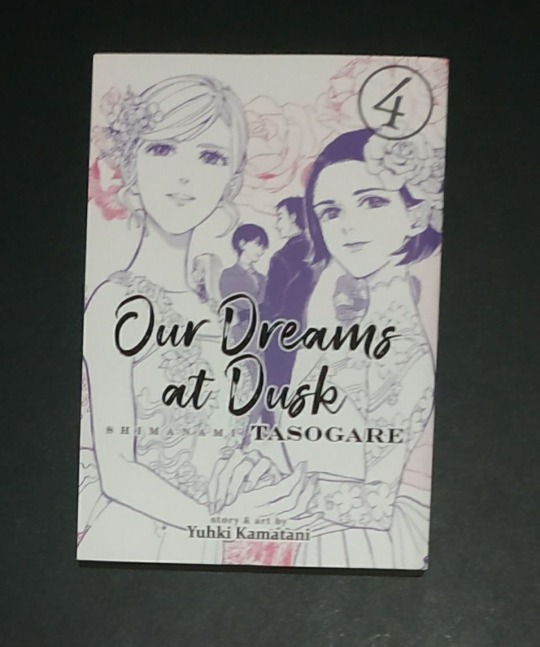
Japanese title: しまなみ誰そ彼 (Shimanami Tasogare)
Story and art: Yuhki Kamatani
English publisher: Seven Seas Entertainment
Number of volumes: 4 (complete)
A glimpse of several futures.
[CW: Mentions of homophobia]
(This review contains story spoilers.)
When I got my physical copies of Our Dreams at Dusk, one of the first things I noticed was how much thicker Volume 4 was compared to all the others. As I began reading the series though, I realized that this last volume was much longer because it had the very lofty task of wrapping up quite a number of plotlines brought up in the first three volumes. And when I realized that this volume was introducing new plot arcs on top of that, I almost wondered why it wasn’t even thicker than it already was.
That said, this does mean that there’s a lot I want to talk about in this volume, but since I don’t want this review to be too lengthy, I figured I’d just focus on the three couples that get the spotlight here. With two of them already in the front cover and the third in the back, I figured it’d feel right to give them the focus, as most of the smaller plot arcs revolve around one of them anyway.
And of course, I should start with the women of the hour - Daichi and Saki, who go through quite a lot before their wedding at Triangle House. With the volume starting out by reminding us that Saki has yet to come out to her parents, you can already sense that the story is building up to that moment. Saki’s been in the background for the past two volumes, so we don’t really get the sense that she’s more willing to face the situation now than she was in the first volume, but with a wedding on the horizon, she definitely finds it more urgent than ever before.
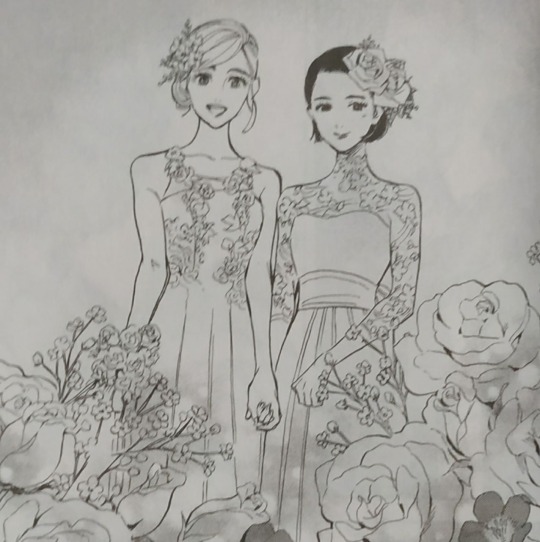
Unfortunately, the way Saki’s parents find out is less than ideal - someone outs her to them. While it’s definitely realistic, I can’t help but feel incredibly sorry for her, as she already had a lot of hesitation about coming out to her parents, so someone else ripping off that bandage from her must’ve stung a lot. Daichi is also at a loss with what to do, as we found out back in Volume 1 that when she came out to her own parents, it was less than ideal.
Thankfully, the couple’s confrontation with Saki’s parents turn out to go quite well. We get a really great speech from Saki’s father here, where he admits that he was very much against the idea when he first heard it. But immediately after, he said that he hated himself for even thinking that when his priority should be his daughter’s happiness. We get a funny interjection from Saki’s mother here, saying that she would’ve been furious with her husband if he didn’t take it the right way. She seems to have already made her peace with her daughter’s sexuality quite some time ago, as she said that she “had a feeling about it.” It might not be the sheer open-mindedness of Tomoko, but it’s pretty much the best possible outcome Saki could’ve gotten.
This ended up a lot more optimistic than I thought it was going to go, but both Daichi and Saki deserve it. Their wedding happens with both of their parents attending, and they finally get to be their true selves in front of their families. It’s the most definitively happy ending out of all the characters in this series, and while I wish we got a bit more build-up for it - especially from Saki’s perspective - I do think it’s a great note to end their plotline on.
Moving back a bit, the person who ends up outing Saki to her parents is Tsubaki’s father, who we know from previous volumes has a pretty warped view of the LGBT community as a whole. So when he visits the drop-in center to apologize to Saki (though he doesn’t find her there as this happens around the same time as Saki’s conversation with her parents), Tsubaki is understandably mad at his father’s insensitivity. The dad is taken aback by his son’s attitude, but he then connects the dots and asks Tsubaki who “dragged him into homosexuality.” We know from the previous volume that Tsubaki is still confused about his identity, so he understandably becomes very defensive at his dad’s assumptions.
Who ends up saving the day, though, is Tasuku, who not only makes the bold decision of coming out to Tsubaki’s father, but also tells him why such an action is important for any LGBT individual. It’s a really great scene for Tasuku, as not only does it show how much he’s learned about the LGBT community across the past volumes, but it also shows how much more comfortable he is about his sexuality. He’s spent the past volumes learning from everyone in the drop-in center while also dealing with his own issues, so to see Tasuku be a lot more confident in this volume is really nice.
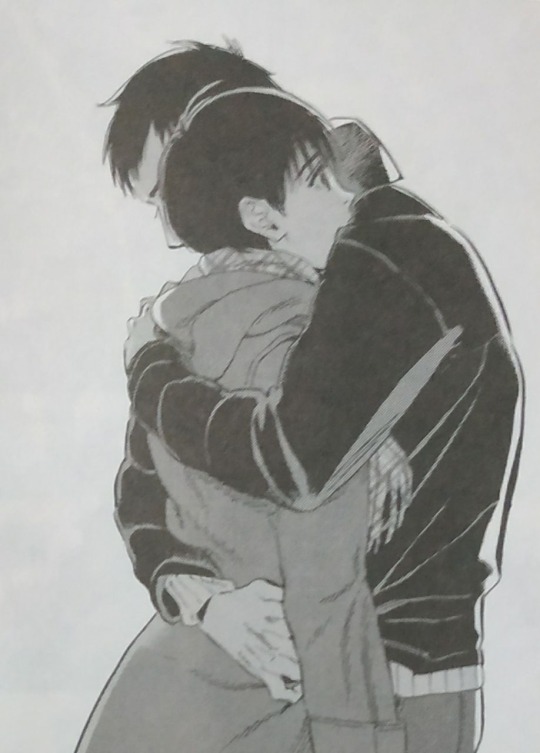
This more confident Tasuku isn’t lost on Tsubaki either, who’s own feelings about his sexuality were already in a flux and were only made worse after that exchange with his father. It leads to this great scene between them where Tsubaki acknowledges Tasuku’s feelings for him but admits that he isn’t ready to face them just yet. This is probably my favorite ending out of all the characters in this series, as instead of treating Tsubaki’s uncertainty about his sexuality as an issue that needs to be solved, the story simply acknowledges it as something he’s continuously working on. I praised Utsumi’s character in Volume 3 for having a different approach to his sexuality, and I can say the same for Tsubaki here - even if we can make all the assumptions we can about it (especially after the epilogue), the fact that the story leaves Tsubaki’s identity open-ended is a great way to show that he himself isn’t ready to put a label on it just yet.
Admirably, Tasuku isn’t heartbroken about this admission, and he even reassures Tsubaki that being confused about his feelings is fine and that he should take all the time he needs to sort them out. Not only is Tasuku using his personal experiences here, but he’s also putting what he learned from Misora and Utsumi in the previous volumes to good use. It only adds to his character development I mentioned earlier, as the Tasuku from three volumes ago wouldn’t have had the same reaction as the Tasuku here. He seems to be heading toward his own happy ending, though, as the epilogue shows Tsubaki telling Tasuku that he can call him by his first name.
(I also have to briefly mention that Tsubaki gets quite touchy with Tasuku throughout this volume, and I find it hilarious that Tasuku’s reaction to these gestures is very mixed. He calls Tsubaki out on it in the epilogue but they don’t really address it, and I think Tsubaki knows that Tasuku likes it anyway.)
Shifting the good mood a bit is Tchaiko, who I don’t think I’ve mentioned in my previous reviews but has been one of the constant presences in the drop-in center since Volume 1. He’s the eldest among the regulars in the center, but we don’t really get much from him in the first three volumes apart from his love of classical music. He gets a full on arc here, though, when we find out that he’s been in a 30-year relationship with his partner, Seichiro, and Tchaiko constantly visits him in the hospital as Seichiro is dealing with a grave illness.
I already had a bad feeling about where this was going from the start, but the conflict of this plot arc doesn’t actually come from Seichiro’s numbered days - it actually sounds like they’ve both quietly accepted it and are only waiting for the inevitable. Instead, it revolves around how Tchaiko hasn’t come clean about his relationship with Seichiro’s son, Akira, and we find out that Tchaiko times his hospital visits so that he’s there when Akira isn’t watching over his father. I was pleasantly surprised that the story went this route, and it even makes for a nice parallel with the two other main conflicts I talked about above - what with all three of them dealing with family complications.
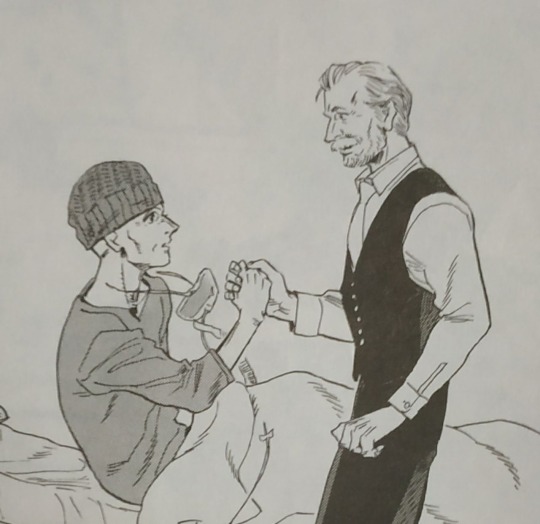
These two largely stay in the background for the middle part of the volume, but on the day of Daichi and Saki’s wedding, Tchaiko gets a text from Akira saying that Seichiro is in a critical condition. This definitely catches Tchaiko off-guard, as not only does he have to deal with the imminent death of the love of his life, but he also has to contend with the fact that Seichiro had apparently told Akira about him. He then has a great scene with Someone-San, who we find out earlier in the volume have been friends for quite some time even before the drop-in center existed. Tchaiko relays all of his worries and indecision to Someone-San, but all she does in the face of those doubts is to push Tchaiko and tell him to go. True enough, when he gets to the hospital, Akira only smiles in acknowledgment and gives Tchaiko the opportunity to say goodbye to Seichiro.
Even if I initially found it odd that the story would introduce a brand new plotline when it still had to wrap up quite a number of them, I really appreciated its inclusion in the end, as it has a really unique vibe when compared to all the other plot arcs of the series. I’m not sure if it’s because this deals with a more seasoned couple, but the sense of satisfaction I got from seeing this plotline resolved is a lot different from the other two I talked about above.
And, really, that’s what makes Our Dreams at Dusk such a standout title for me - how it’s able to handle all of these stories and give them the depth they deserve. I was a bit worried that this volume was biting off more than it could chew, but in the end I found myself liking where all of the characters ended up. Sure, I may have wanted more out of some characters, but that’s really just another way of saying that I didn’t want this series to end at all.
Random thoughts that I couldn’t fit elsewhere:
Apart from Tchaiko, the other Cat Clutter member that finally gets the spotlight in this volume is Someone-San, who has really only spent the last three volumes being this mysterious presence that’s both critical to the plot and in the background. We find out here that she considers herself aromantic and asexual, but she doesn’t like putting a label on herself at all, with the name “Someone-San” even being given to her by Tchaiko and Seichiro. We also get a really great line from her about how her asexuality isn’t what defines her, and how it’s only one part of her entire identity. As much as I want to talk about her monologue about who she is, I honestly haven’t wrapped my head around it all that well and I feel like I’m still missing certain pieces about that chapter. I will say that it was a great set of panels though.
One of the other plotlines that gets wrapped up in this volume is Misora's, as Tasuku wants to invite him to Daichi and Saki’s wedding. It goes a lot better than I expected, as Tasuku simply goes through all of the things that he did wrong and asks for Misora’s forgiveness, which he gives almost nonchalantly, but you can tell that he appreciates the gesture. (Also his look in the wedding is his best one in the series.)
I’m kinda surprised that we didn’t get more from Tasuku and Tsubaki’s school life here, as I would’ve expected more people to point out the changed dynamic between the two of them considering that Tsubaki’s fairly popular and Tasuku isn’t. The only one who does point it out is Tachibana, Tasuku’s closest friend in school and teammate in the table tennis club, and all he really says is how he wants to join in on the fun too. I wonder if he’ll notice that there’s more going on between them?
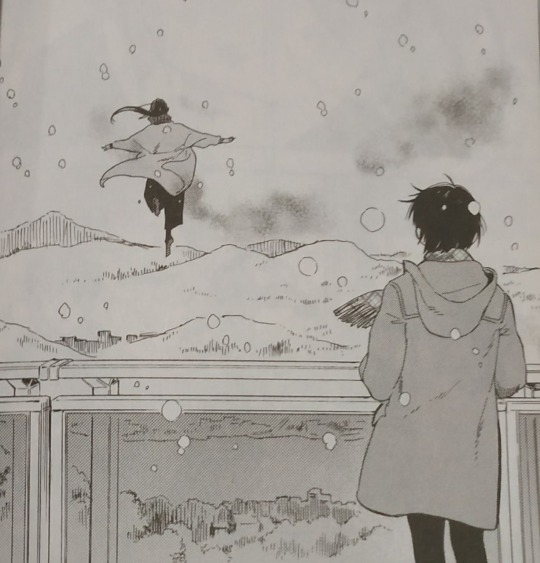
Thanks for reading! You can read my review of the first two volumes here, and my review of the third volume here. Our Dreams at Dusk has really gone up my personal rankings the more I reread it, as there’s really nothing quite like it among the manga I’ve read so far. It’s a really emotional and fulfilling series, and I highly recommend it.
#Our Dreams at Dusk#Shimanami Tasogare#Yuhki Kamatani#Kaname Tasuku#Tsubaki Touma#Daichi Haruko#Saki#Ilya Tchaiko#Agawa Seichiro#LGBT manga#manga review#manga
2 notes
·
View notes
Text
Aspec Manga Rec: Our Dreams at Dusk
Written and illustrated by Yuhki Kamatani, Our Dreams at Dusk is a manga about self acceptance, dealing with expectations, the power of queer spaces and the relief in questioning one's own identity.
Trigger Warning: Homophobic Comments, Mentions of Sexual Content, Transphobia, and Mentions of Suicidal Intent. I you can handle these topics, I highly reccomend this manga. If not, I break down the main aspec character below the break.
This manga is a masterpiece of identity and the overwhelming heteronormative expectations of society. The manga itself is incredibly contemplative of these topics but also the power and solidarity that comes with queer spaces. A lot of this is my own interpretation and the manga leaves a lot up in the air for the reader to decide for themselves.
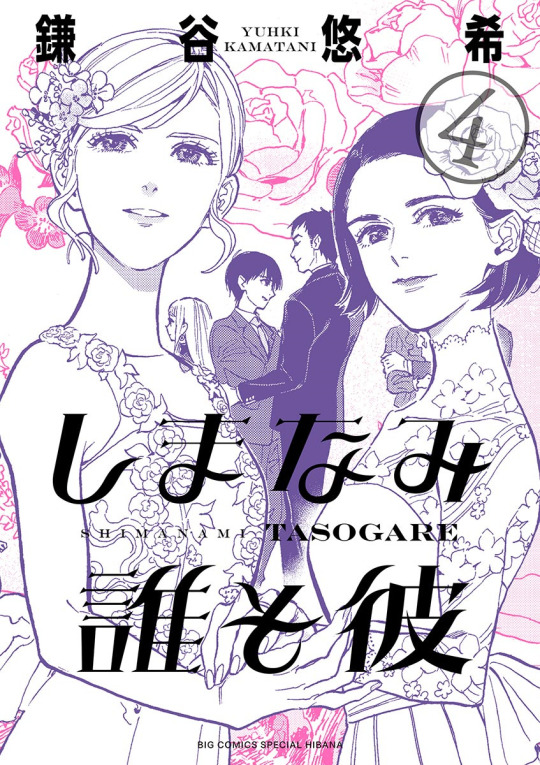
Light Plot Spoilers Below:
The main plot of the manga follows Tasuku Kaname and his process of dealing with the fact that he was outed as gay to his high school class. The evolution of his self-acceptance and moving towards living a queer life in the public eye is the main conflict, but he isn't the one I want to focus on.
The main supporting character of the manga is Anonymous. She owns the small house from which a community sprung out supporting many queer individuals who couldn't find themselves elsewhere in society. But her origins are what make her characterization as an aspec character interesting, though she prefers to remain unlabeled.
We are first introduced to Anonymous as she flies through the air and confronts Tasuku when he is contemplating suicide after being outed at school. Multiple times throughout the manga show her often appearing and disappearing at will, seemingly able to do whatever she wishes to do. She is as she says, "nobody".
In listening to one of the older members of the community, they recount giving her the identity of "nobody" because she felt like she couldn't be defined by society because of her lack of romantic and sexual attraction.

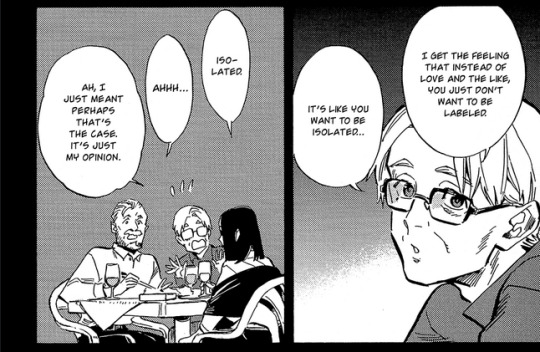

Important Note: A lot of the time in Japanese Media the term "Asexual" refers to the term "Aromantic Asexual" in English as it is in this case. An "alloace" would be "Nonsexual". There isn't any adopted phrase for aroallo people, though there are ways of describing the feeling rather than a label.
Anonymous desired to be so because of a lack of social support in Japanese society for people that want to remain "isolated", so she accepted an identity that remains "invisible". Anonymous also identifies as free of gender but is referred to by female pronouns.
This ungrounded identity is really expressed later in the manga near the end, inspiring the idea that your labels aren't your entire personhood and that you are a living breathing person just like everyone else, even if you are Anonymous. Anonymous isn't Anonymous because she is Asexual; she is because she wants to remain undefined as a person. Anonymous isn't a list of labels and personality traits, she is the foundation for a network of support, and that is what is most important to her.
Anonymous is a characterization of the role of queer communities in supporting others without taking on the burden of their identities to try and understand.
TLDR:
Our Dreams at Dusk presents an aspec character dealing with the weight of societal expectations through a disassociation of identity from self. Anonymous exists as both herself and the personification of queer support.
#aspec character#manga rec#I could write essays on this#I really want to actually#asexuality#aromantic#our dreams at dusk
29 notes
·
View notes
Photo
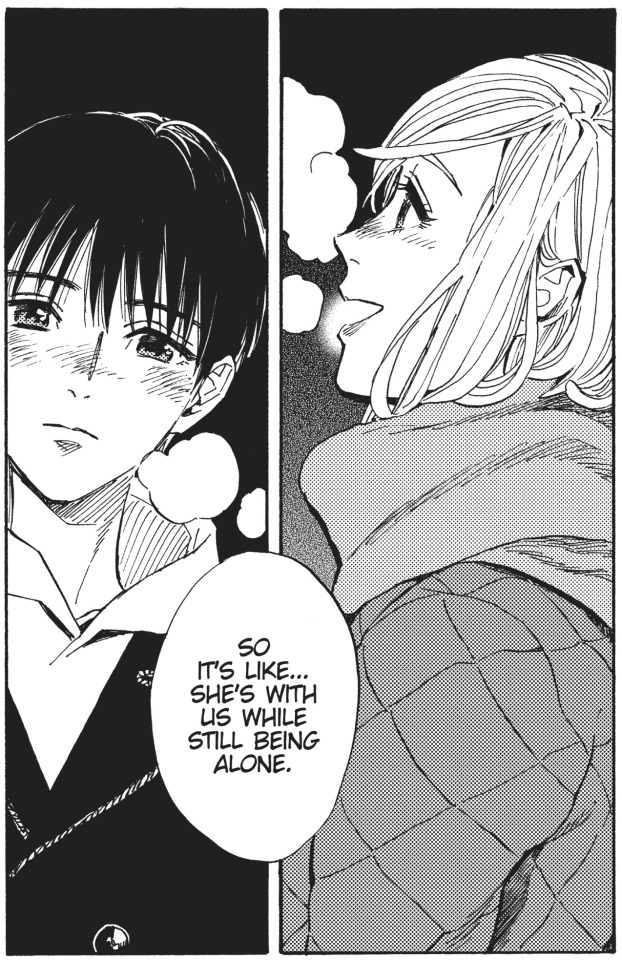
Shimanami Tasogare - Yuhki Kamatani
144 notes
·
View notes
Text
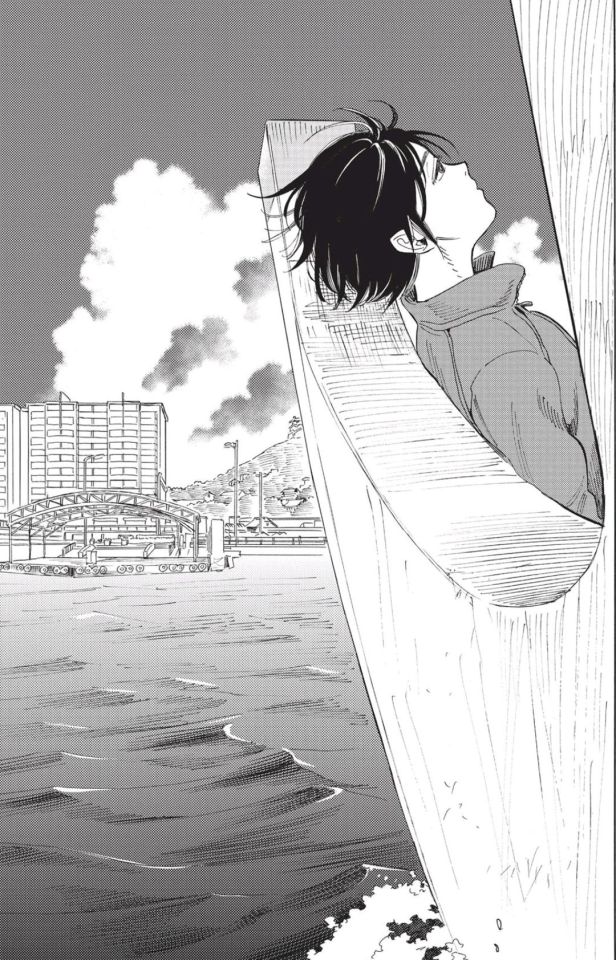
53 notes
·
View notes
Photo

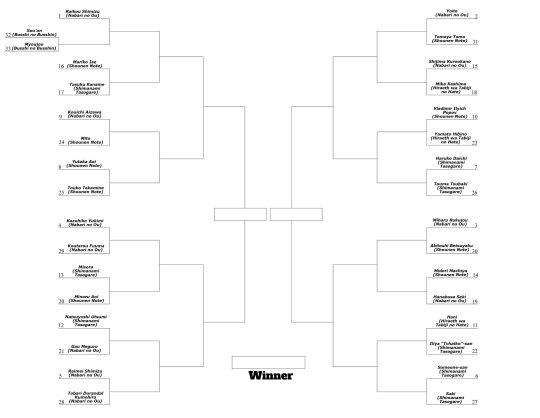
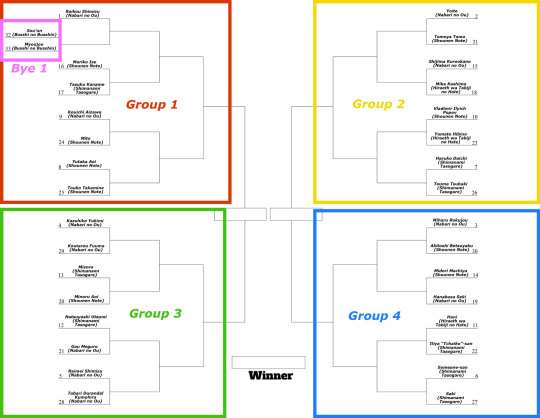
finally, a tournament bracket where a Kamatani character will advance past the first round
announcing the All-Kamatani Tournament Bracket! this tournament will start with one bye (pre-round match) tomorrow, June 7 (all times are in Pacific time). each poll will run for one week, typically starting on Thursdays. I’ve separated the initial round (following the bye) into four groups of four polls each so as to not overwhelm with polls.
image descriptions below cut (for length)
[image description:
image 1: “All-Kamatani Tournament Bracket” “finally, a tournament where a Kamatani character will make it past the first round.” The background shows the covers of the first volumes of Yuhki Kamatan’s major serialized works, in chronological order: Nabari no Ou, Shounen Note, Busshi no Busshin, Shimanami Tasogare, and Hiraeth wa Tabiji no Hate.
image 2: tournament bracket. On the left side: Seed 1, Raikou Shimizu (Nabari no Ou), faces the winner of bye 1 (Seed 32, Sou’un, Busshi no Busshin, versus seed 33, Myoujou, Busshi no Busshin). Seed 16, Mariko Ise (Shounen Note), faces seed 17, Tasuku Kaname (Shimanami Tasogare). Seed 9, Kouichi Aizawa (Nabari no Ou), faces seed 24, Mito (Shounen Note). Seed 8, Yutaka Aoi (Shounen Note), faces seed 25, Touko Takamine (Shounen Note). Seed 4, Kazuhiko Yukimi (Nabari no Ou), faces seed 29, Koutarou Fuuma (Nabari no Ou). Seed 13, Misora (Shimanami Tasogare) faces seed 20, Minoru Aoi (Shounen Note). Seed 12, Natsuyoshi Utsumi (Shimanami Tasogare) faces seed 21, Gau Meguro (Nabari no Ou). Seed 5, Raimei Shimizu (Nabari no Ou) faces seed 28, Tobari Durandal Kumohira (Nabari no Ou). On the right side: Seed 2, Yoite (Nabari no Ou) faces seed 31, Tomoya Tomo (Shounen Note). Seed 15, Shijima Kurookano (Nabari no Ou) faces seed 18, Mika Kashima (Hiraeth wa Tabiji no Hate). Seed 10, Vladimir Ilyich Popov (Shounen Note), faces seed 23, Yamato Hibino (Hiraeth wa Tabiji no Hate). Seed 7, Haruko Daichi (Shimanami Tasogare), faces seed 26, Touma Tsubaki (Shimanami Tasogare). Seed 3, Miharu Rokujou (Nabari no Ou), faces seed 30, Akitoshi Betsuyaku (Shounen Note). Seed 14, Midori Machiya (Shounen Note), faces seed 19, Hanabusa Seki (Nabari no Ou). Seed 11, Hani (Hiraeth wa Tabiji no Hate), faces seed 22, Iliya “Tchaiko”-san (Shimanami Tasogare). Finally, seed 6, Someone-san (Shimanami Tasogare) faces seed 27, Saki (Shimanami Tasogare).
image 3: The same tournament bracket, but with lines separating it into four groups by quadrant. The upper left is group 1, the upper right is group 2, the lower left is group 3, and the lower right is group 4. Included in group 1 is Bye 1, which separates the match between Sou’un and Myoujou from the rest of the group.
/end image description.]
#nabari no ou#shimanami tasogare#shounen note#our dreams at dusk#yuhki kamatani#shonen note#busshi no busshin#hiraeth wa tabiji no hate#hiraeth the end of the journey#tournament
42 notes
·
View notes
Text
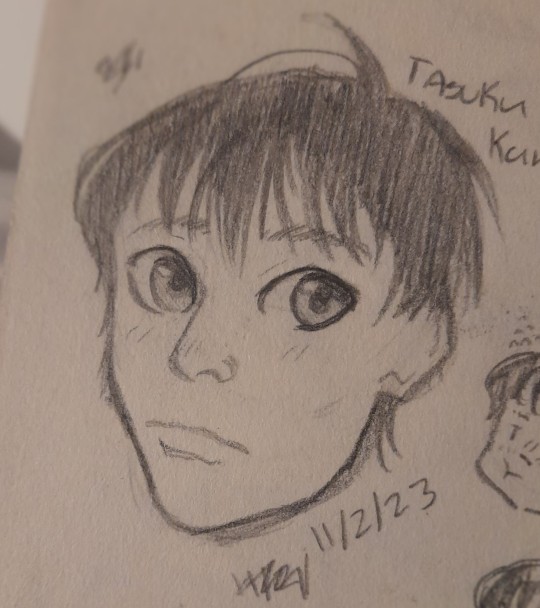
Tasuku kaname - 'Our dreams at dusk'
2 notes
·
View notes
Text
HONORABLE MENTIONS: Shimanami Tasogare (2015 - 18)
NOTE: This was a submission rejected on the grounds that you can't really call it yuri in any real way; there is an important lesbian couple in the central cast, however.


Shimanami Tasogare is a three volume drama series by Yuhki Kamatani about a closeted gay boy learning to accept himself through the power of queer solidarity.
After recently moving to Onomichi, Hiroshima, high school student Tasuku Kaname is thrown into despair at the possibility that he may have been outed for being gay. Convinced his life is over, his despair turns into shock when he sees a woman jump out of a window of a nearby house. Tasuku races to the house in a panic only to discover that it's a public meeting lounge owned by the woman he saw before. Tasuku comes face to face with the woman as she walks past him unharmed, but not before she implies that she had been watching him from afar. Confused, Tasuku follows her up to the top of a steep hill where she offers to briefly listen to what's on his mind. Although Tasuku doesn't go into too much detail, he later accepts her invitation to come to the lounge to meet others with similar troubles.
- AniList
Original JP available on Book Walker; ENG published by Seven Seas.
CWs under the cut. General severity rating: significant.
some references to sex but no sexual content
suicide <- protagonist considers suicide in response to almost being outed, and the option of dying is referenced quite a lot in the first few chapters. non-literal imagery of someone jumping from a height is used somewhat frequently.
harassment <- adult women offhandly mention being harassed in the workplace every so often.
groping <- in ch9 a sixth grader is groped in public while presenting femininely*. their friend says the Wrong thing trying to comfort them about it (that it happened because they look cute).
dysphoria <- a young amab character* is shown to be very uncomfortable going through puberty.
homophobia <- major theme, though no violence takes place (aside from another queer kid* freaking out in ch9). includes use of the f slur, queer as a slur and the word homo.
transphobia <- not as frequent as the homophobia. casual transphobia & deadnaming directed towards a trans man (not outright hateful; from a minor character who means well but isnt good at being an ally). happens in ch11 - 14.
terminal illness & death <- a minor character has cancer, and dies in the last arc of the manga

*one of the characters (misora) crossdresses regularly, but them not being ready to put a label on their gender is a whole plot point. i do want to be clear that thats why im using they/them, not to misgender them.
9 notes
·
View notes
